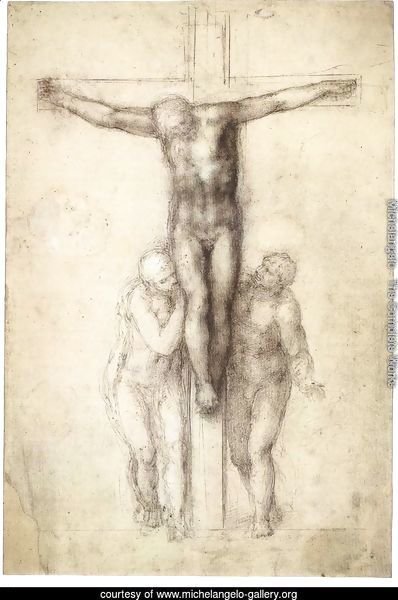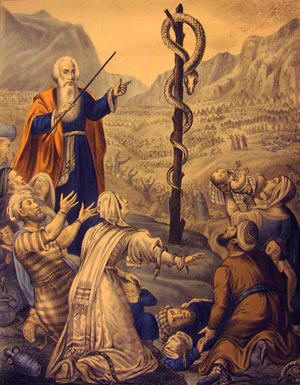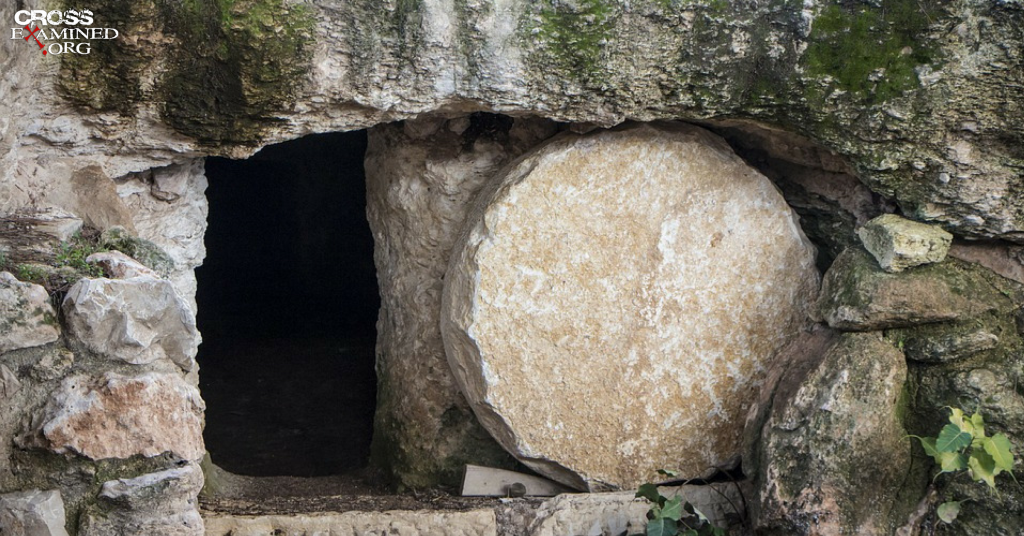A Better High Priest for a New & Better Covenant
March 25, 2019The Judicial Implications of the Cross for Principalities and Powers
October 20, 2019
The cross is a place of exchange. We come to the cross carrying every cursed and awful thing that befell mankind in the fall. There we lay those things down and walk away with our arms laden with extraordinary gifts. Yes, this seems too good to be true. But then the word gospel literally means “wonderful news,” doesn’t it?
In fact, we make seven key exchanges at the foot of Jesus’ cross.* The more we understand, embrace, and believe these seven exchanges, the more expectant and faith-filled—and therefore more powerful—our prayers become. The first of these seven exchanges that occur when we accept God’s offer of salvation through Jesus’ sacrifice is this:
1. We exchange our sinfulness for Jesus’ righteousness.
God made him who had no sin to be sin for us, so that in him we might become the righteousness of God. (2 Corinthians 5:21, NIV)
As this verse states, Jesus—who was sinless—became sin itself, so that we might actually “become” the very righteousness of God. What an astonishing declaration. Yet it is absolutely true.
It’s not just that Jesus’ perfection is imputed to us through some divine accounting trick, it’s literally imparted to us through the miracle of the new birth.
The prophet Isaiah glimpsed the Messiah’s future crucifixion and cried, “The Lord has laid on Him the iniquity of us all!” (Isaiah 53:6, NKJV) The apostle John, who had stood there beside the Savior’s mother on that day, described it this way: This is real love—not that we loved God, but that he loved us and sent his Son as a sacrifice to take away our sins. (1 John 4:10, NLT)
Could anything other than “real love” offer a trade this lopsided? Jesus takes not only our individual acts of sin, but our sinfulness. In return, He assigns to us His own personal righteousness. With it, we gain the amazing privilege of communion and connectedness to God that our forefather Adam once enjoyed but lost.
Jesus was made to be sin with our sinfulness that we might be made righteous with His righteousness. This is the first exchange available at the cross. It is a wondrous trade.
2. We Exchange Our Cursedness for His Blessings
From the very beginning, God’s plan was for His people to live in blessing.
That extraordinary Garden into which He settled them was place of abundance, joy, peace, and beauty. It is no accident that the first words we hear God speaking over the very first people are words of blessing: God blessed them; and God said to them, “Be fruitful …”(Genesis 1:28, NASB)
Of course, we know that when Adam and Eve rebelled, they let loose a horrific curse upon the Earth in place of that blessing. Disease, lack, oppression, misery, strife, and pain suddenly reigned. Even the ground became cursed—refusing to yield provision gladly. For every one of the first couple’s descendants, pain, hardship, and grief became the hard reality of life.
Yes, the First Adam released a curse upon the world. And yes, the Earth still groans under the weight of that curse and will continue to do so until a new heaven and Earth come along. But at the cross the Last Adam, Jesus, turned blessing loose in its place for those willing to humbly receive His offer.
Paul had this truth in mind when he told the Christians in Rome: So just as sin ruled over all people and brought them to death, now God’s wonderful grace rules instead, giving us right standing with God and resulting in eternal life through Jesus Christ our Lord. (Romans 5:21, NLT)
This is the message of this verse as well.
Christ redeemed us from the curse of the Law, having become a curse for us—for it is written, “Cursed is everyone who hangs on a tree”—in order that in Christ Jesus the blessing of Abraham might come to the Gentiles, so that we would receive the promise of the Spirit through faith. (Galatians 3:13–14, NASB)
At the cross we get to exchange life under Adam’s curse for Abraham’s life of blessing. This is the second of the seven amazing exchanges we make when we accept God’s gracious offer of salvation.
3. Our Rejection for His Acceptance

We all know that Jesus suffered for our sins, literally having our sins laid upon Him as He was crucified. Many of us are aware that Jesus bore our sicknesses and infirmities, that we might know health and healing.
But have you ever considered the fact that Jesus suffered the ultimate in rejection by God that you might experience the acceptance He knew as the Son of God?
He was despised and rejected by mankind, a man of suffering, and familiar with pain. Like one from whom people hide their faces he was despised, and we held him in low esteem. (Isaiah 53:3, NIV)
You will recall that one of Christ’s seven statements from the cross was to quote Psalm 22:1—“My God, why have you forsaken me?” (NIV). He cited this because at that moment He was experiencing the divine rejection we deserve. No human being has ever experienced such total rejection as Jesus experienced on the cross.
Jesus suffered your rejection so you might have His acceptance. You can purpose today to never again to insult the enormity of Jesus’ sacrifice by approaching God on the basis of your own worthiness (or lack thereof).
Yes, you may still fall back into the trap of disqualifying yourself from time to time. But you can learn to fight for your heart confidence. To feed it and strengthen it with God’s Word. To attack undermining, disqualifying thoughts with scriptural truth.
Fly to Him, child of God. Run as fast as your feet can carry you. Know that you are accepted, loved, and unspeakably welcome. Then with grateful mindfulness of all He has done for you in the past, pour out to Him your requests.
4. Our Sickness for His Health

This brings us to the 53rd chapter of Isaiah, containing the prophet’s prophetic vision of Jesus’ suffering and death by crucifixion, roughly 800 years in advance of the event.
But He was wounded for our transgressions, He was bruised for our iniquities; the chastisement for our peace was upon Him, and by His stripes we are healed. (Isaiah 53:5, NKJV)
It is significant to note that this verse is filled with the language of exchange and substitution. The Messiah receives wounds for ourtransgressions. He is bruised for ouriniquities. Ourpeace is purchased by His chastisement. His stripes—the marks of the brutal Roman scourging that preceded the crucifixion—brought about ourhealing.
We know that sickness and disease are not God’s will for His people because there was no illness in the Garden when He placed the first man and woman there. Pain and infirmity were not part of the lovely creation that God declared “good.” Sickness was and is a result of the fall and its ensuing curse.
Through the centuries, there have always been teachers and their followers who do not believe that provision for physical healing was made in the atoning work of Jesus. Not surprisingly, there are few healing miracles seen among these Christians, which in turn only seems to confirm their assumption.
But among Believers who have understood that physical healing is an integral element in Jesus’ atoning work, miraculous restorations are not unusual. Countless sick and suffering children of God have walked boldly into the court of heaven and received the provision Jesus purchased for them with His own body and blood.
At the cross, you can exchange your brokenness—spiritual, physical, and emotional—for Jesus’ wholeness.
5. Our Shame for His Glory
In the Old Testament we find two Hebrew words translated into our English word “shame.” They are related, but they describe two different sides of the human experience of shame.
The word boshethdescribes the guilt and embarrassment we feel when our sin comes to light. It is bosheththat caused Adam and Eve to hide from the presence of God and sew fig-leaf garments. Every person with a functioning conscience has felt this shame.

The other Old Testament word for shame is kalam, and it speaks of being hurt, rejected, disgraced, defiled, or humiliated—usually in public and particularly by someone close to you.
The first shame is that sense of uncleanness we feel when we sin,resulting in damage to ourselves or others. Its close companion is our English word guilt. The second shame is that humiliating sense of defilement and worthlessness we feel when we are used or abused by others.
In other words, we feel the first shame when we hurt someone else. And we feel the second shame when someone hurts us. The very history of the human race since the fall is little more than these two forms of shame simultaneously ravaging souls of mankind generation after generation. Abusing and being abused. Defiling and being defiled. Hurt people hurting people.
Jesus carried every bit of this with Him to the cross. When Jesus looked ahead to the cross, He didn’t see pain. He saw unspeakable shame. Our shame—our boshethand kalam—being heaped upon Himself in almost infinite measure.
… looking unto Jesus, the author and finisher of our faith, who for the joy that was set before Him endured the cross, despising the shame, and has sat down at the right hand of the throne of God(Hebrews 12:2, NKJV).
Oh, what shame Jesus bore on the day of His great sacrifice.
One of the great wonders of the cross is that Jesus did more than bear our sin. He bore the first great consequence of sin … our shame. No matter what we’ve done or what has been done to us, we are invited to come to the cross and leave our shame there.
Why would we continue to carry a single particle of it?
6. Our Poverty for His Abundance
For you know the grace of our Lord Jesus Christ, that though He was rich, yet for your sake He became poor, so that you through His poverty might become rich(2 Corinthians 8:9, NASB).
This verse explicitly states that Jesus became poor in order to effect yet another aspect of the great exchange at the cross. Many have debated the question: In what sense did Jesus becomepoor? It is clear that He did so in two senses.
First, He became radically poorer the moment He stepped out of eternity and stepped into this fallen, broken, time-bound world. God the Son, the Word, laid aside the glory and splendor of heaven and moved into the frail, fragile body of an infant lying in a hay trough in a Middle Eastern backwater village.
It stands as the most stunning drop in status and privilege imaginable. Paul clearly had this reality in mind when he wrote in Philippians 2:5–7, “Let this mind be in you which was also in Christ Jesus, who did not consider His equality with God a thing to be grasped [clung to], but emptied Himself, taking the form of a servant …”
Secondly, whatever possessions Jesus accumulated in His life were taken from Him on that day He was crucified. On trial before Pilate, He had nothing left but the robe on His back, a little physical strength, and His dignity. Soon all of these would be stripped away, too.
The Prince of Heaven would soon hang naked and despised before a gawking world as Roman soldiers rolled dice for His garment. Never has a man been so utterly destitute as was Jesus on that cross in those dark hours. He was poor in every way a person can be. No possessions, no comfort, no defenders, and no friends. But why?
So that beggars like us could become children of the King.
We come to the cross to make a wonderful, absurd, unreasonable, too-good-to-be-true exchange. We bring our utter bankruptcy and leave it there. We walk away rich—in love, in hope, in peace, in power—and, yes, in abundant material provision for our every need.
7. Our Death for His Life

There is a certain sad irony in the realization that we live in a culture seemingly obsessed with zombie movies and television series, while the world is filled with people who are themselves a type of “walking dead.”
In His initial warning to Adam and Eve, God said, “You must not eat from the tree of the knowledge of good and evil, for when you eat from it you will certainly die.” As we know, they ate anyway, yet they did not fall over dead the instant they disobeyed that command. Nevertheless, they did die that day, in a multitude of ways.
In that moment, physical death became a part of their futures, and also for their billions of offspring yet unborn. It seems strange, but in a very real sense, every one of us was born both dying and already dead.
This changes when come to the cross and make the greatest exchange of all—His life for our death. Paul had this exchange in mind when he wrote to the Colossians: You were dead because of your sins and because your sinful nature was not yet cut away. Then God made you alive with Christ, for he forgave all our sins(Colossians 2:13, NLT).
Therefore, just as sin entered the world through one man, and death through sin, and in this way death came to all people, because all sinned … For if, by the trespass of the one man, death reigned through that one man, how much more will those who receive God’s abundant provision of grace and of the gift of righteousness reign in life through the one man, Jesus Christ!(Romans 5:12, 17, NIV)
It is a tragedy of unspeakable proportions when anyone dies without having made that exchange. It is a tragedy God sent Jesus to prevent. “For God so loved the world that He gave … that whoever … should not perish but have everlasting life”. (John 3:16, NKJV) At the cross Jesus made it possible for us to exchange our deaths—in every form—for His life in every form.
“The thief comes only to steal and kill and destroy,”Jesus told us. “I have come that they may have life, and have it to the full”(John 10:10, NIV).
At the cross, you traded your life of walking death for one in which you are fully alive in every way.
Seven Exchanges . . .
Here in this weekend in which we stand in awestruck wonder at the love of God displayed on the cross, let’s be diligent to make sure we’ve made every one of those exchanges. Let not a drop of that precious blood or a single measure of that costly suffering go to waste.
*I am in the debt of the late, extraordinary Bible teacher Derek Prince for this list. His book Bought with Blood: A Divine Exchange at the Cross was a life changing encounter for me. I recommend it heartily.
